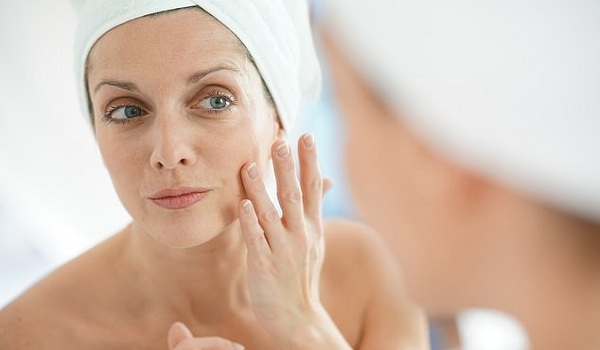Doctor claims the beauty staple ‘does more harm than good’ for millions of women as she gives her tips for perfect winter skin
Moisturiser is regarded as a skincare staple, but one doctor has made the controversial claim that we should give it up for good.
Dr. Sobia Ali warns that the millions of women using cream on a daily basis could be making themselves dependent on the product, leading to a ‘vicious cycle’ that could spell disaster for your skin, according to Daily Mail.
Dr. Sobia, has issued a stark warning to those who incorporate it into their daily regime, noting that overusing it can aggravate wrinkles, acne, rosacea and pigmentation.
Here, she gives her practical advice for ditching the product – along with her top tips for caring for your skin throughout the winter.
Is your skin really dry?
‘Only a very small percentage of people have a ‘true’ dry skin condition, like eczema or psoriasis,’ Dr Sobia explains. ‘But in reality, many of us feel that we do have dry or sensitive skin, and the automatic reaction is to reach for a moisturiser, particularly in winter when the weather can give our skin a battering.
‘Moisturiser doesn’t hydrate our skin. Natural hydration must come from within our skin, and it cannot be replaced by moisturisers.’
What happens when you use a moisturiser?
‘When a moisturiser is applied to the skin regularly, the deeper layers of the skin detect this and switch off their own natural moisturising mechanisms, resulting in dry skin and even moisturiser dependence.
‘This is a vicious cycle, as the more that the moisturiser is placed on to the skin, the drier the skin will be on the insider, resulting in long-term skin problems. The moisturiser can also sit on the surface of dry skin, clogging the pores and damaging the texture of the skin; it can also aggravate wrinkles, acne, rosacea and pigmentation.
‘Most of my patients do not have a dry skin condition, such as eczema or psoriasis, and so I encourage them to stop using moisturisers immediately. It takes around three weeks to wake up the skin’s own natural moisturising process, but in the long run, your skin will thank you for it.’
How to achieve healthy winter skin
So, what should we be using over the winter, if our moisturisers are banned?
Dr Sobia explains: ‘Serums rich in vitamin C will help the skin repair, especially over the winter months. Vitamin C is a multitasking antioxidant powerhouse which repairs, renews and strengthens the skin.
‘Typically, I start my patients on at least 10 per cent pure Vitamin C to help them see real results. Hyaluronic acid and ceramides are essential for skin hydration as they help the skin retain its natural moisturiser.
‘It is also important to continue exfoliating throughout the winter, to remove dead skin cells. Exfoliants rich in glycolic, lactic and salicylic acids will help stimulate healthy skin turnover and boost collagen levels in the skin.’
N.H.Kh

